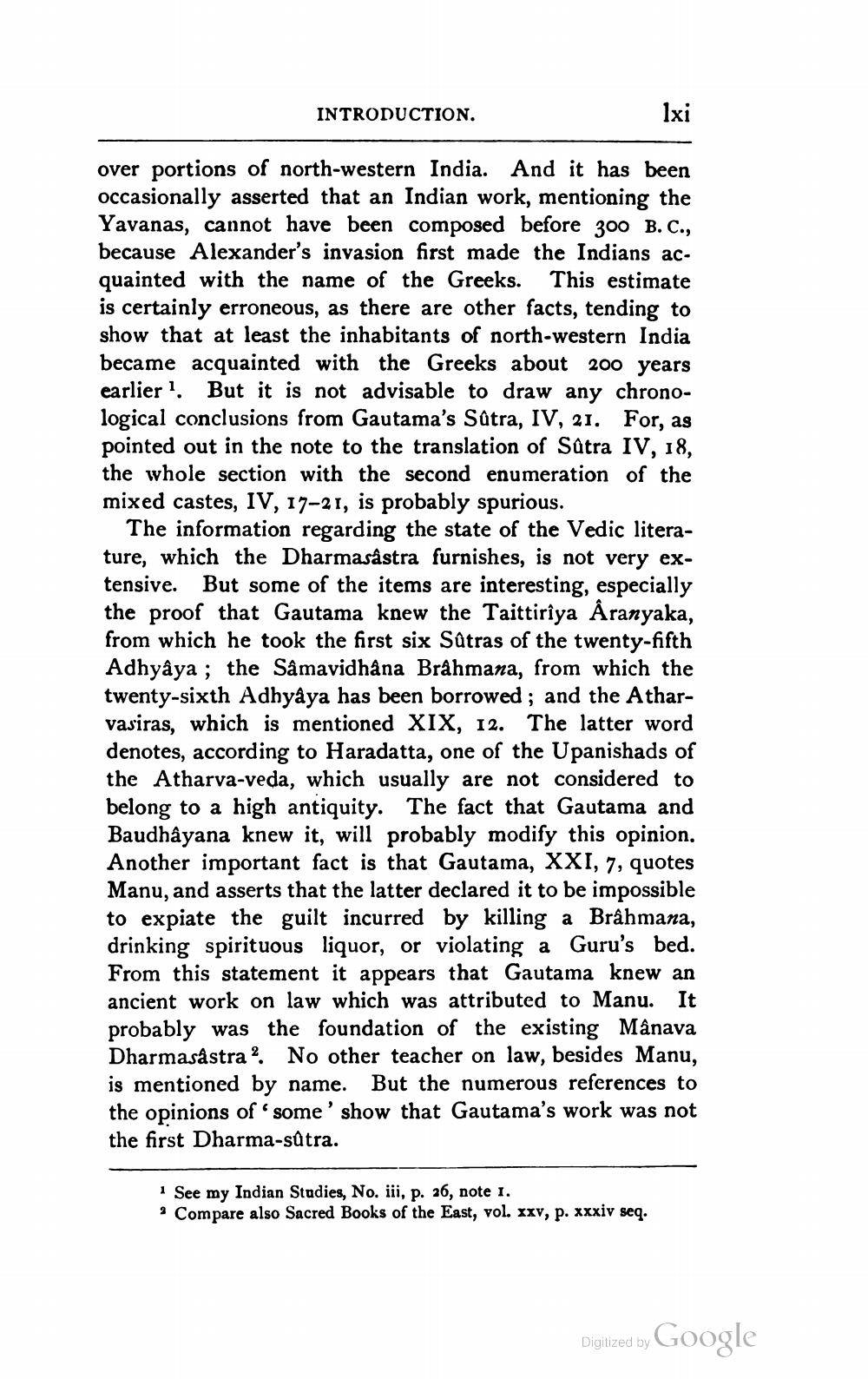________________
INTRODUCTION.
lxi
over portions of north-western India. And it has been occasionally asserted that an Indian work, mentioning the Yavanas, cannot have been composed before 300 B.C., because Alexander's invasion first made the Indians acquainted with the name of the Greeks. This estimate is certainly erroneous, as there are other facts, tending to show that at least the inhabitants of north-western India became acquainted with the Greeks about 200 years earlier 1. But it is not advisable to draw any chronological conclusions from Gautama's Sûtra, IV, 21. For, as pointed out in the note to the translation of Sutra IV, 18, the whole section with the second enumeration of the mixed castes, IV, 17-21, is probably spurious.
The information regarding the state of the Vedic literature, which the Dharmasastra furnishes, is not very extensive. But some of the items are interesting, especially the proof that Gautama knew the Taittiriya Aranyaka, from which he took the first six Sûtras of the twenty-fifth Adhyâya ; the Sâmavidhana Brahmana, from which the twenty-sixth Adhyâya has been borrowed ; and the Atharvasiras, which is mentioned XIX, 12. The latter word denotes, according to Haradatta, one of the Upanishads of the Atharva-veda, which usually are not considered to belong to a high antiquity. The fact that Gautama and Baudhayana knew it, will probably modify this opinion. Another important fact is that Gautama, XXI, 7, quotes Manu, and asserts that the latter declared it to be impossible to expiate the guilt incurred by killing a Brâhmana, drinking spirituous liquor, or violating a Guru's bed. From this statement it appears that Gautama knew an ancient work on law which was attributed to Manu. It probably was the foundation of the existing Mânava Dharmasastra? No other teacher on law, besides Manu, is mentioned by name. But the numerous references to the opinions of some' show that Gautama's work was not the first Dharma-sætra.
See my Indian Stadies, No. iii, p. 26, note 1. · Compare also Sacred Books of the East, vol. xxv, p. xxxiv seq.
Digitized by Google




